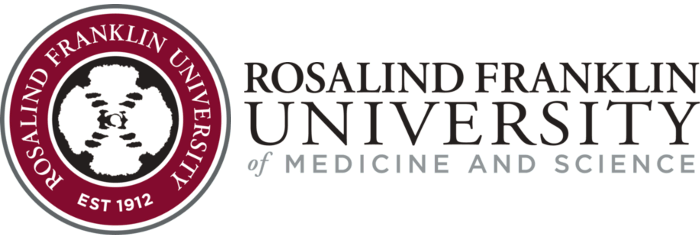Rosalind Franklin University of Medicine and Science Rankings by Salary Score™

Master's
Doctoral
Salary and Debt by Major at Rosalind Franklin University
We calculated a Salary Score for each of Rosalind Franklin University's programs by comparing program-specific median alumni earnings to median alumni earnings for the same program across all schools that provide this data. This way, students can compare the relative salary strength of a specific major at Rosalind Franklin University to the same major at other schools. A school's overall score by level is based on the school's by-program performance weighted by student enrollment in each program. Data is sourced from the December 2020 release of the U.S. Department of Education's College Scorecard and reflects median alumni debt upon graduation and median alumni earnings in the year after graduation for students who received federal financial aid. Debt and salary numbers are shown rounded to the nearest $10.
Salary Score ™ for RFU Master's Degrees
| Field of Study | Employment Rate | Median Debt | Median Salary |
|---|---|---|---|
| Allied Health and Medical Assisting Services | $96,180 | $89,490 | |
| Allied Health Diagnostic, Intervention, and Treatment Professions | $112,790 | $103,610 | |
| Clinical, Counseling and Applied Psychology | Not Reported | $38,290 | |
| Health and Medical Administrative Services | Not Reported | $83,180 | |
| Registered Nursing, Nursing Administration, Nursing Research and Clinical Nursing | Not Reported | $196,430 |
Salary Score ™ for RFU Doctoral Degrees
| Field of Study | Employment Rate | Median Debt | Median Salary |
|---|---|---|---|
| Clinical, Counseling and Applied Psychology | $172,040 | $75,520 | |
| Medicine | $241,430 | $57,190 | |
| Pharmacy, Pharmaceutical Sciences, and Administration | $208,460 | $120,720 | |
| Rehabilitation and Therapeutic Professions | $126,770 | $70,730 |
Most Recent Reviews
Fine medical and podiatry school. One challenge is that clerkship rotations are done at multiple hospitals throughout Chicago., many of which are community hospitals. That is one disadvantage compared to schools with their own teaching hospital. Basic sciences faculty is engaged and student perform well on Step 1.
The school provides a great atmosphere of study and is committed to interprofessionalism. This means different programs have classes together so you have a chance to get to know people from other programs. Comparatively, the cost of tuition is affordable however there are very few scholarships available to students through the school.